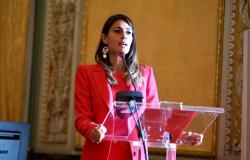As he sails towards victory – and towards his third term in office, with a smaller result than the exit polls had predicted and without the “super majority” he was aiming for – Indian Prime Minister Narendra Modi has been in the dock for some time. Ending up in the crosshairs it is openly Islamophobic rhetoric which marked the electoral campaign of “his” Hindu nationalist Bharatiya Janata Party (BJP). With a leap in quality. While Modi appeared more aloof from the party, in the final weeks of the election campaign he showed off increasingly aggressive tones and arguments. At an election rally on April 21, 2024, Modi called Muslims “infiltrators.” At another rally he stated that if India’s largest opposition party, the Indian National Congress, came to power, the wealth of Hindus would be stolen and given to communities that “have too many children”, a not-so-subtle reference to Muslims.
“What is unique about what we have seen recently is that these statements were made by the Prime Minister himself,” he explained to the CNN Milan Vaishnav, senior fellow and director of the South Asia Program at the Carnegie Endowment for International Peace. The judgment of political researcher and columnist Asim Ali is even harsher: Modi “is painting Muslims as an existential threat to Hindus”. As he writes BBC, since the Hindu nationalist Bharatiya Janata Party (BJP) came to power in 2014, the country’s 200 million Muslims have been living in a state of perpetual fibrillation. And fear. “Anti-Muslim hate speech has increased: three-quarters of incidents were reported from BJP-ruled states.” “Muslims have become second-class citizens, an invisible minority in their own country” is the bitter observation of the writer Ziya Us Salam.
The defense is entrusted to Syed Zafar Islam: “There is no reason for Muslims to be anxious”, who attributes the growing Islamophobia to “irresponsible media”. «A small accident happens somewhere, and the media amplifies it as if it had never happened before. In a country of 1.4 billion people, several similar incidents can occur between communities or within communities. But they cannot be generalized.”
No “super majority” for the BJP
At Modi’s party headquarters in New Delhi there is a “restrained” festive air. «No, we probably won’t reach the 400 seat threshold, but the BJP will get a majority on its own and form the government” said Alka Goel, a party supporter who does not hide her disappointment at not achieving the parliamentary “super majority” that the party hoped to achieve.
The projections obtained from the first official results of the electoral count in India, with a quarter of the votes already officially counted, show the NDA alliance, led by Prime Minister Modi, in the lead with around 300 seats (39.3% of the votes), while the opposition would have around 200. If this trend is confirmed, the result for the Congress party and the other opposition groups will be better than what was predicted in recent days by the exit polls . BJP spokespersons continue to assert that the NDA alliance will be largely capable of forming the next government; according to some reporters present, a certain caution is spreading in the party headquarters. To form the government in India it is necessary for a single party, or an alliance, to have at least 272 out of the 543 total seats in Parliament.




